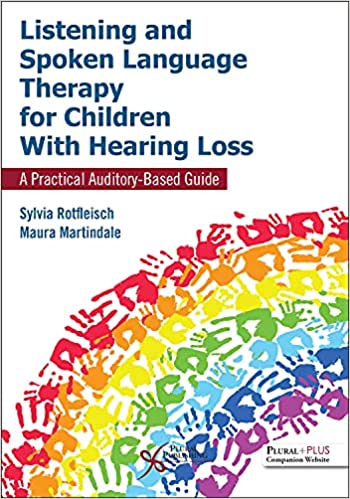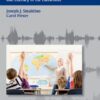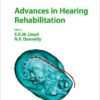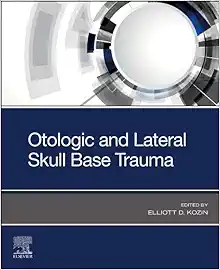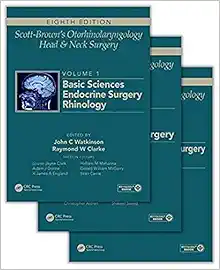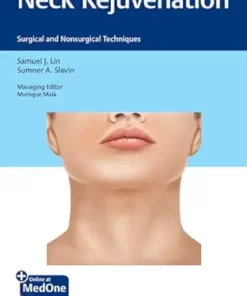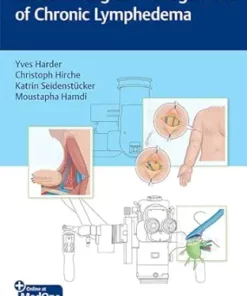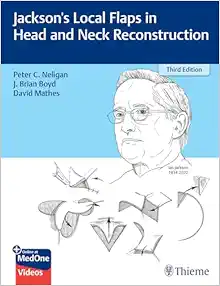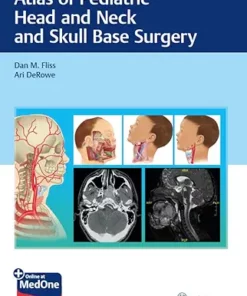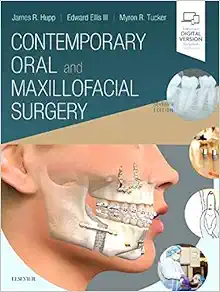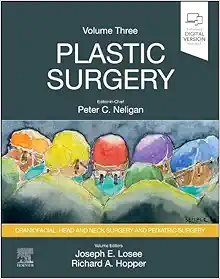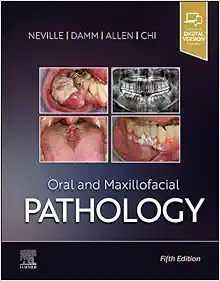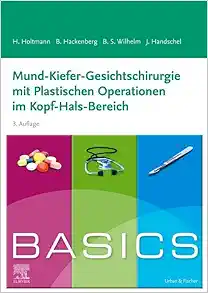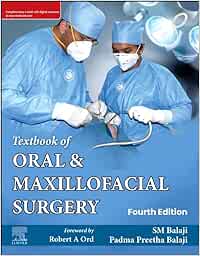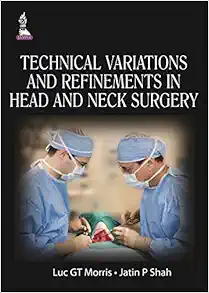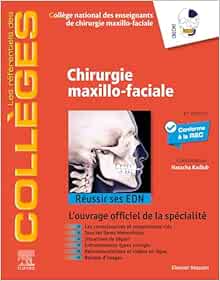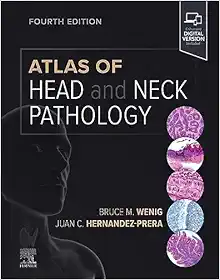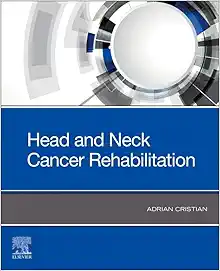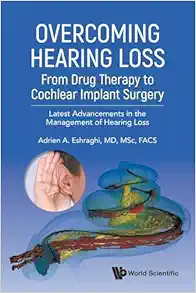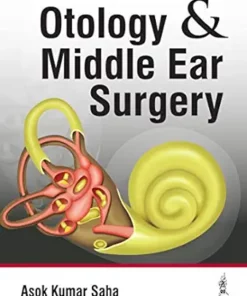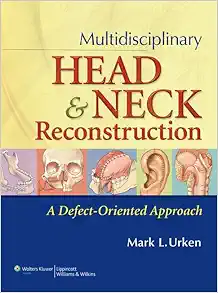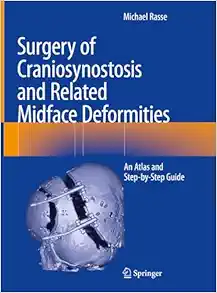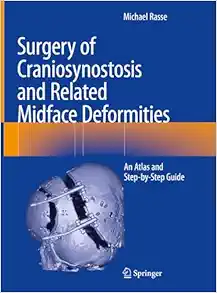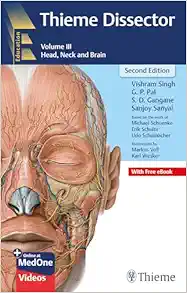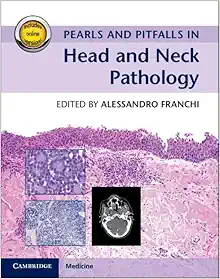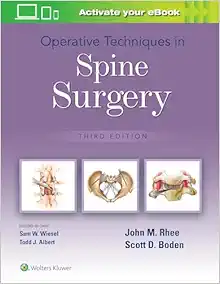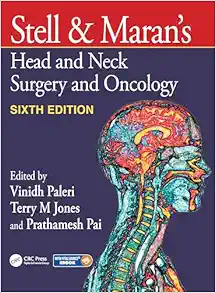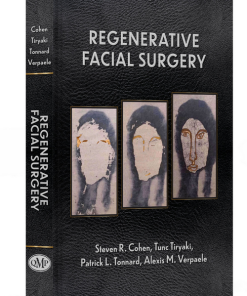Listening and Spoken Language Therapy for Children With Hearing Loss: A Practical Auditory-Based Guide, First Edition (Original PDF from Publisher)
$19
Publisher PDF
File Size = 24.00 MB
- A color-coding system for the model and a consistent presentation of content and tables provide clarity and a streamlined experience
- A comprehensive case study for each stage puts the approach into context
- Easy-to-use resources, in the form of tables and handouts for parents, give professionals ready-made tools for working with families
- Explanations of proven strategies, including speech acoustics applications, Rainbow audiogram, e=mc2, Activities of Daily Living (ADL) theory, cookie dough theory, three-act play, and the dangling carrot
- A deep conversation about the role of culture provides a uniting thread throughout the text
- A PluralPlus companion website with PowerPoint lecture slides and exams for instructors and videos, handouts, learning activities, and discussion questions for students and professionals
- Publisher : Plural Publishing, Inc.; 1st edition (November 29, 2021)
- Language : English
- Paperback : 310 pages
- ISBN-10 : 1635503876
- ISBN-13 : 978-1635503876
- ISBN-13 : 9781635503876
- eText ISBN: 9781635503883
By Sylvia Rotfleisch, Maura Martindale
Listening and Spoken Language Therapy for Children With Hearing Loss: A Practical Auditory-Based Guide is a well-organized and practical textbook based on a proven spoken language, speech, and listening model for teaching children with hearing loss. Supported by decades of research and experience, the stage-based model is presented with clear steps for intervention. Written in easy-to-understand language, this textbook is accessible to university students who are new to the field of hearing loss, as well as to new and experienced professionals. It is a highly applicable tool for providing auditory-based therapy which supports professionals to empower parents and caregivers.
The stages emphasized in this textbook are developmental in nature, starting with the prelinguistic level and ending with advanced communication. Unlike the traditional age approach, this unique system can address any child regardless of age intervention. Operating based on the understanding that language is acquired through meaningful social interaction, the “stages not ages” system can be used for late starters, English learners, and children with additional disabilities.
Key Features
Reviews
“The text gives clear insights on discerning a child’s current listening and spoken language abilities according to benchmarks and offers a research-based toolset to facilitate ongoing progress. While focus is kept on empowering parents to implement intervention objectives for their child to acquire hierarchical skills, the context stays true to the family’s culture and daily lifestyle. …Impressive work! Very relevant—there isn’t a textbook with this “angle” available in the field. It’s a great resource!”
—Nicole Jacobson, MS, CCC-SLP, LSLS Cert. AVEd, Director of Sound Beginnings, Clinical Assistant Professor, Department of Communication Disorders and Deaf Education, Utah State University
“I like how the topics are organized. They do not go off in tangents. The authors don’t just present information, they teach the material with many examples and supports. …The book is comprehensive from background theoretical knowledge to application. Parents are often neglected when teaching therapy, and the authors have a whole chapter. This is essential as the parents must become the therapist for maximum effectiveness. …The book is chock full of information presented in novel ways. The authors can take a difficult topic and teach it through examples and supporting graphics. The book is a bridge between multidisciplines (audiology, speech science, and education). Additionally, the book seamlessly incorporates cultural considerations. This is unique to most textbooks on this topic.”
&mdash
Product Details
Related Products
HEAD AND NECK SURGERY & OTOLARYNGOLOGY
Otologic and Lateral Skull Base Trauma (True PDF from Publisher)
HEAD AND NECK SURGERY & OTOLARYNGOLOGY
HEAD AND NECK SURGERY & OTOLARYNGOLOGY
Neck Rejuvenation: Surgical and Nonsurgical Techniques (EPUB)
HEAD AND NECK SURGERY & OTOLARYNGOLOGY
HEAD AND NECK SURGERY & OTOLARYNGOLOGY
Jackson’s Local Flaps in Head and Neck Reconstruction (EPUB)
HEAD AND NECK SURGERY & OTOLARYNGOLOGY
HEAD AND NECK SURGERY & OTOLARYNGOLOGY
Atlas of Pediatric Head and Neck and Skull Base Surgery (EPUB)
HEAD AND NECK SURGERY & OTOLARYNGOLOGY
Contemporary Oral and Maxillofacial Surgery, 7th Edition (EPUB)
HEAD AND NECK SURGERY & OTOLARYNGOLOGY
HEAD AND NECK SURGERY & OTOLARYNGOLOGY
Oral and Maxillofacial Pathology, 5th Edition (True PDF from Publisher)
HEAD AND NECK SURGERY & OTOLARYNGOLOGY
HEAD AND NECK SURGERY & OTOLARYNGOLOGY
Textbook of Oral and Maxillofacial Surgery, 4th Edition (True PDF from Publisher)
HEAD AND NECK SURGERY & OTOLARYNGOLOGY
Technical Variations and Refinements in Head and Neck Surgery (Original PDF from Publisher)
HEAD AND NECK SURGERY & OTOLARYNGOLOGY
Chirurgie Maxillo-Faciale, 6th Edition (True PDF from Publisher)
HEAD AND NECK SURGERY & OTOLARYNGOLOGY
Atlas of Head and Neck Pathology, 4th Edition (True PDF from Publisher)
HEAD AND NECK SURGERY & OTOLARYNGOLOGY
Head and Neck Cancer Rehabilitation (True PDF from Publisher)
HEAD AND NECK SURGERY & OTOLARYNGOLOGY
HEAD AND NECK SURGERY & OTOLARYNGOLOGY
Head and Neck Cancer: Clinical Aspects (Original PDF from Publisher)
HEAD AND NECK SURGERY & OTOLARYNGOLOGY
HEAD AND NECK SURGERY & OTOLARYNGOLOGY
Multidisciplinary Head and Neck Reconstruction: A Defect-Oriented Approach (EPUB + Converted PDF)
HEAD AND NECK SURGERY & OTOLARYNGOLOGY
HEAD AND NECK SURGERY & OTOLARYNGOLOGY
HEAD AND NECK SURGERY & OTOLARYNGOLOGY
Thieme Dissector Volume 3: Head, Neck and Brain, 2nd Edition (Original PDF from Publisher)
HEAD AND NECK SURGERY & OTOLARYNGOLOGY
Pearls and Pitfalls in Head and Neck Pathology (Converted EPUB)
HEAD AND NECK SURGERY & OTOLARYNGOLOGY
2024 Practical Head & Neck Imaging: Mimics and Case-based Review – DocmedED (Videos)
HEAD AND NECK SURGERY & OTOLARYNGOLOGY
Operative Techniques in Spine Surgery, 3rd Edition (Original PDF from Publisher)
HEAD AND NECK SURGERY & OTOLARYNGOLOGY
2024 Multidisciplinary Head and Neck Cancers Symposium onDemand (Videos)
HEAD AND NECK SURGERY & OTOLARYNGOLOGY
Stell & Maran’s Head and Neck Surgery and Oncology, 6th edition (Original PDF from Publisher)
HEAD AND NECK SURGERY & OTOLARYNGOLOGY
HEAD AND NECK SURGERY & OTOLARYNGOLOGY
MAFAC Amsterdam 2023 – Cadaver Dissection Demonstrations & Lectures
HEAD AND NECK SURGERY & OTOLARYNGOLOGY
HEAD AND NECK SURGERY & OTOLARYNGOLOGY
Complex Head and Neck Microvascular Surgery: Comprehensive Management and Perioperative Care PDF
HEAD AND NECK SURGERY & OTOLARYNGOLOGY
Lateral Neck Swellings: Diagnostic and Therapeutic Challenges
HEAD AND NECK SURGERY & OTOLARYNGOLOGY
HEAD AND NECK SURGERY & OTOLARYNGOLOGY
Anatomy of Orofacial Structures: A Comprehensive Approach, 9th Edition
HEAD AND NECK SURGERY & OTOLARYNGOLOGY
HEAD AND NECK SURGERY & OTOLARYNGOLOGY
50 Landmark Papers every Thyroid and Parathyroid Surgeon Should Know
HEAD AND NECK SURGERY & OTOLARYNGOLOGY
Matrix Head and Neck Reconstruction: Scalable Reconstructive Approaches Organized by Defect Location
HEAD AND NECK SURGERY & OTOLARYNGOLOGY
HEAD AND NECK SURGERY & OTOLARYNGOLOGY
HEAD AND NECK SURGERY & OTOLARYNGOLOGY
Basic Guide to Oral and Maxillofacial Surgery (Basic Guide Dentistry Series)
HEAD AND NECK SURGERY & OTOLARYNGOLOGY
HEAD AND NECK SURGERY & OTOLARYNGOLOGY
HEAD AND NECK SURGERY & OTOLARYNGOLOGY
HEAD AND NECK SURGERY & OTOLARYNGOLOGY
HEAD AND NECK SURGERY & OTOLARYNGOLOGY
Otolaryngology: Current Concepts and Techniques in Head and Neck Surgery
HEAD AND NECK SURGERY & OTOLARYNGOLOGY
HEAD AND NECK SURGERY & OTOLARYNGOLOGY
Nanostructures for Oral Medicine (Micro and Nano Technologies)
HEAD AND NECK SURGERY & OTOLARYNGOLOGY
Kurzlehrbuch Hals-Nasen-Ohren-Heilkunde (UNI-MED Science), 4th Edition
HEAD AND NECK SURGERY & OTOLARYNGOLOGY
Postlaryngectomy voice rehabilitation with voice prostheses (UNI-MED Science)
HEAD AND NECK SURGERY & OTOLARYNGOLOGY
HEAD AND NECK SURGERY & OTOLARYNGOLOGY
HEAD AND NECK SURGERY & OTOLARYNGOLOGY
HEAD AND NECK SURGERY & OTOLARYNGOLOGY
HEAD AND NECK SURGERY & OTOLARYNGOLOGY
The Milan System for Reporting Salivary Gland Cytopathology, 2nd Edition
HEAD AND NECK SURGERY & OTOLARYNGOLOGY
HEAD AND NECK SURGERY & OTOLARYNGOLOGY
HEAD AND NECK SURGERY & OTOLARYNGOLOGY
Hair Cell Regeneration (Springer Handbook of Auditory Research, 75)
HEAD AND NECK SURGERY & OTOLARYNGOLOGY
HEAD AND NECK SURGERY & OTOLARYNGOLOGY
Soundscapes: Humans and Their Acoustic Environment (Springer Handbook of Auditory Research, 76)
HEAD AND NECK SURGERY & OTOLARYNGOLOGY
Simulation-Based Learning in Communication Sciences and Disorders: Moving from Theory to Practice
HEAD AND NECK SURGERY & OTOLARYNGOLOGY
Fundamentals of Anatomy and Physiology of Speech, Language, and Hearing
HEAD AND NECK SURGERY & OTOLARYNGOLOGY
HEAD AND NECK SURGERY & OTOLARYNGOLOGY
100 Complications of Otorhinolaryngology & Skull Base Surgery PDF & VIDEO
HEAD AND NECK SURGERY & OTOLARYNGOLOGY
The Art of Body Contouring: After Massive Weight Loss, 2nd edition Original PDF and Video
HEAD AND NECK SURGERY & OTOLARYNGOLOGY
HEAD AND NECK SURGERY & OTOLARYNGOLOGY
2023 Osteocom Hard and Soft Tissue Augmentation 2.0 – Luca De Stavola
HEAD AND NECK SURGERY & OTOLARYNGOLOGY
Sinus Grafting for Implant Reconstruction (Pikos Online MasterClass Series) – Michael A. Pikos
HEAD AND NECK SURGERY & OTOLARYNGOLOGY
Osteocom Full Tilted Implants Prosthetic and Surgical Protocols 2023
HEAD AND NECK SURGERY & OTOLARYNGOLOGY
HEAD AND NECK SURGERY & OTOLARYNGOLOGY
Optimizing Orthognathic Surgery: Diagnosis, Planning, Procedures (Epub & Converted to PDF)
HEAD AND NECK SURGERY & OTOLARYNGOLOGY
HEAD AND NECK SURGERY & OTOLARYNGOLOGY
2023 Classic Lectures in Head & Neck Imaging – A CME Teaching Activity
HEAD AND NECK SURGERY & OTOLARYNGOLOGY
Structure & Preservation Rhinoplasty Conference 2021 Istanbul
HEAD AND NECK SURGERY & OTOLARYNGOLOGY
HEAD AND NECK SURGERY & OTOLARYNGOLOGY
HEAD AND NECK SURGERY & OTOLARYNGOLOGY
HEAD AND NECK SURGERY & OTOLARYNGOLOGY
HEAD AND NECK SURGERY & OTOLARYNGOLOGY
Working with Voice Disorders, 3e (Original PDF from Publisher)
HEAD AND NECK SURGERY & OTOLARYNGOLOGY
Principles and Practices in Augmentative and Alternative Communication (Original PDF from Publisher)
HEAD AND NECK SURGERY & OTOLARYNGOLOGY
HEAD AND NECK SURGERY & OTOLARYNGOLOGY
HEAD AND NECK SURGERY & OTOLARYNGOLOGY
Jaypee’s Video Atlas of Operative Otorhinolaryngology and Head & Neck Surgery (Videos Only)
HEAD AND NECK SURGERY & OTOLARYNGOLOGY
Ear, Nose and Throat Simplified, 3rd edition (Original PDF from Publisher)
HEAD AND NECK SURGERY & OTOLARYNGOLOGY
ORL: Réussir son DFASM – Connaissances clés, 5th edition (Original PDF from Publisher)
HEAD AND NECK SURGERY & OTOLARYNGOLOGY
HEAD AND NECK SURGERY & OTOLARYNGOLOGY
Invasive Skull Base Mucormycosis New Perspectives (Original PDF from Publisher+Videos)
HEAD AND NECK SURGERY & OTOLARYNGOLOGY
Atlas of Facial Nerve Surgeries and Reanimation Procedures Original PDF
HEAD AND NECK SURGERY & OTOLARYNGOLOGY
Non-Surgical Rhinoplasty (The PRIME Series) (Original PDF from Publisher)
HEAD AND NECK SURGERY & OTOLARYNGOLOGY
Rinologia: Master Techniques In Otolaryngology – Head And Neck Surgery (Original PDF from Publisher)
HEAD AND NECK SURGERY & OTOLARYNGOLOGY
Secrets: Otorrinolaringologia, 4th Edition (Original PDF from Publisher)
HEAD AND NECK SURGERY & OTOLARYNGOLOGY
Otorrinolaringologia: Manual Prático em Cores (Original PDF from Publisher)
HEAD AND NECK SURGERY & OTOLARYNGOLOGY
HEAD AND NECK SURGERY & OTOLARYNGOLOGY
Current Opinion in Otolaryngology & Head and Neck Surgery 2022 Full Archives (True PDF)
HEAD AND NECK SURGERY & OTOLARYNGOLOGY
HEAD AND NECK SURGERY & OTOLARYNGOLOGY
Pediatric Otolaryngology: Practical Clinical Management,1st edition (EPUB)
HEAD AND NECK SURGERY & OTOLARYNGOLOGY
Color Atlas of Endo-Otoscopy: Examination-Diagnosis-Treatment, 1st edition (EPUB)
HEAD AND NECK SURGERY & OTOLARYNGOLOGY
HEAD AND NECK SURGERY & OTOLARYNGOLOGY
Manual of Eye, Ear, Nose, and Throat Emergencies (Original PDF from Publisher)

